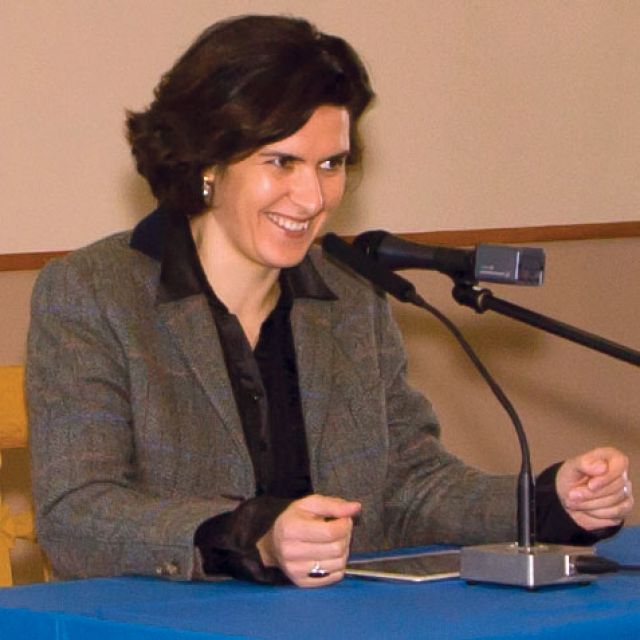“We are in a situation where the state wants to take all the power, the rights and the duties that normally belong to the parents,” Anne Coffinier, the president and co-founder of Créer son école association and la Fondation pour l’école, told Catholic parents in Montreal Dec. 7.
A leader of a growing independent Catholic school movement in France, Coffinier spoke to a conference organized by the Association of Catholic Parents of Quebec on the theme: “Education, a project of the family and of the school.”
“When you are in a country where the state is the only actor, the only educator, you have no diversity, you have no pluralism, and a real democracy is no longer possible,” she said. “To have a democracy, you have to have a debate and to have a debate you have to have people with various points of view.
“If everyone has the same view, the same background, the same ideas, then you just have an administrative way of running the state and no more democracy, no more freedom of religion, freedom of conscience or freedom of expression.”
France’s education ministry is motivated by 19th-century ideas that to be free one has to be “delivered from all sorts of roots, traditions, loyalties and links,” she said. “When you are sort of ‘brand new’ you can be a free citizen.”
There is also the view the family is the place where “archaic” ideas are imposed on children and “the mission of state schools is to deliver the children from the obscurantism which is coming from the family,” she said. Parents are “dangerous” in that they make it difficult for the child to “enter modernity.”
Coffinier addressed about 100 parents and educators who also heard from Montreal Archbishop Christian Lépine, constitutional lawyer Jean-Yves Cote and Loyola High School principal Paul Donovan.
Quebec Catholic parents face the province’s mandatory Ethics and Religious Culture program (ERC). A challenge to the program by a group of Catholic parents from Drummondville, Que., led to the Supreme Court of Canada decision that parents could not exempt their children from the program. The court decided the parents had not proven the ERC would harm their children’s Catholic faith.
The province has also forced Loyola High School, a private Catholic school in Montreal, to teach the ERC from a “neutral” standpoint instead of allowing the school to teach world religions and ethics from a Catholic perspective. The school is challenging the ruling in court, and the case will be heard by the Supreme Court of Canada in March.
France’s culture of secularism or laicity, that seeks to push religion out of the public square, is similar to that in Quebec.
“I have the impression it is worse in Quebec,” said Coffinier.
Independent Catholic schools have sprung up in France, despite its state-funded private Catholic school system, which in many ways mirrors the public system, she said. “They have the same curriculum, programs, teachers, grants, books and the same learning timetable.”
Over the past 10 or 15 years, more than 600 “totally independent schools” run by parents and teachers, “mainly Catholic,” have sprung up in France.
Her foundation came into being to support the schools, train teachers, defend them in court and lobby to protect their rights.
Though poor, with no state funding, the schools keep growing in number: last year 37 new schools came into existence.
“People are reacting and forming schools for religious and educational purposes,” she said. “People are disappointed by the schools and try to react to protect their children.”
Though the French bishops’ conference as a whole has been silent on the issue, a number of prominent bishops actively support the movement in their dioceses, she said.
Coffinier, a former diplomat, and some lawyers formed the association in 2004. It is pushing for the creation of a voucher system and tax credits so that all parents can have a choice of education.


